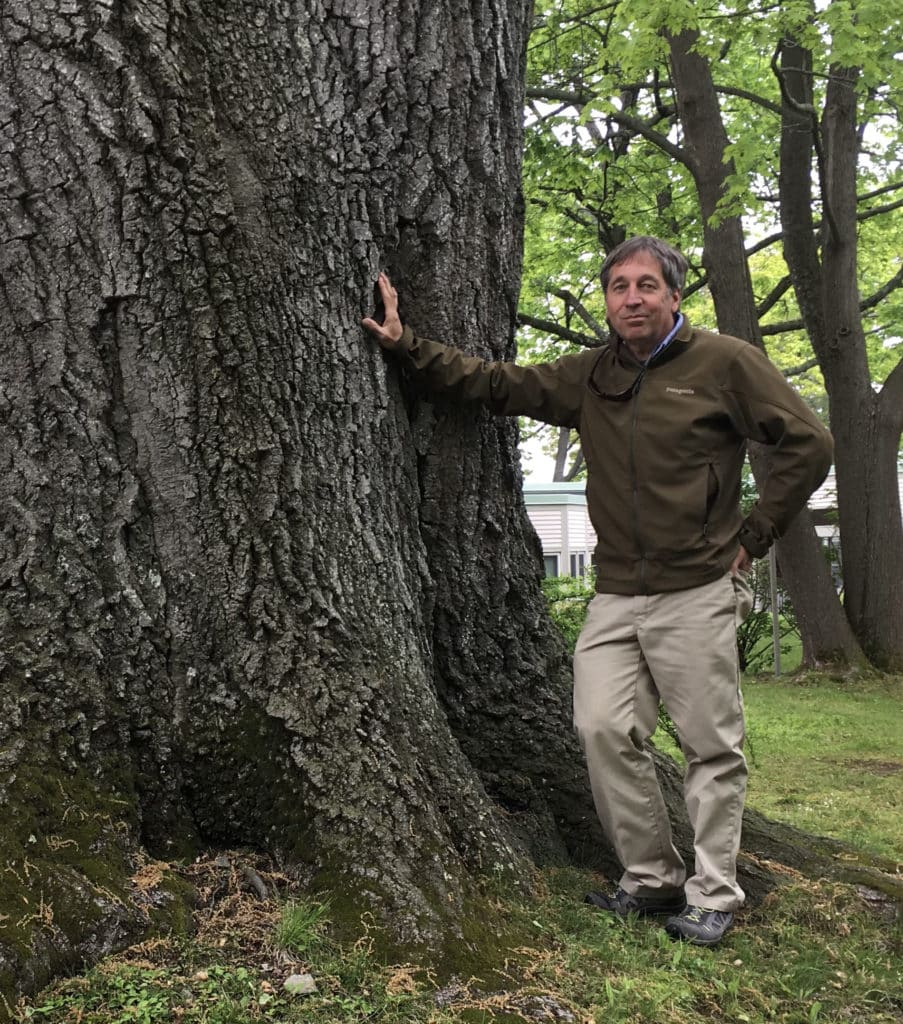
When Jeff Tarling retired from his role as Portland’s Arborist in January, we were sad to see him go, but honored to have collaborated with him on many projects. Jeff worked for the city for 34 years and became well known for his passion for trees, his community engagement, and his commitment to the greening of the city. Walk through Portland with him, and it seems like there’s not a single tree he doesn’t know. Each place and community Jeff has dutifully served has its own story and history, and Jeff is the first to appreciate how much his career has enriched his life, his love of Maine, and his hope for the future.
We’re delighted to announce that Jeff has joined Maine Audubon as an Urban Forestry Education Specialist. Among other things, he will be working on several education grant projects, and helping to develop new partnerships and programs in other urban areas like Lewiston and Bangor. Jeff is deeply (over multiple decades and projects) connected to and enamored with Maine Audubon and the many of you, members of our community of support, whom he has worked with over the years. We’re thrilled to have Jeff on the Maine Audubon staff.
For his first project, Jeff has organized a weekly webinar series called “Our Forests, Our Climate, Our Communities,” and will host a different speaker every Wednesday at 6 pm during the month of October.
We invite you to join Jeff and our speakers for these free online talks.
Our Forests, Our Climate, Our Communities
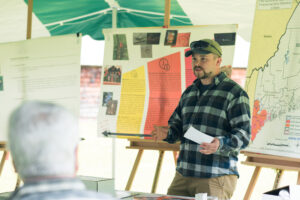 October 4: Ash Trees & Our Communities
October 4: Ash Trees & Our Communities
Ash trees have been important for people and communities in this region for over 10,000 years. We turn to Wabanaki experts and leaders to connect us with ash, and to discuss challenges and solutions for saving and restoring these essential trees. The speaker, Tyler Everett, is a professional forester, researcher, and Ph.D. student at the University of Maine, and a citizen of Mi’kmaq Nation. His current research focuses on the impacts of emerald ash borer on Tribal ash resources and identifying innovative management and mitigation strategies for this issue that include an understanding of silviculture, climate change, and most importantly Tribal cultural values. His research interests focus on forest entomology, forest ecology, and silviculture.
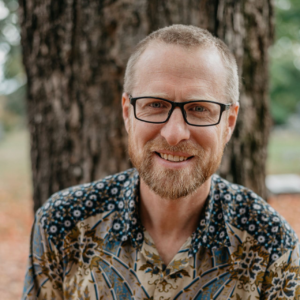 October 11: Climate, Carbon, and Forest Ecology in Maine, New England, and Beyond
October 11: Climate, Carbon, and Forest Ecology in Maine, New England, and Beyond
We will hear about current projects and strategies to reduce carbon and improve climate both at home in Maine and globally from Peter W. Ellis, Global Director of Natural Science for The Nature Conservancy. Peter leads a team of scientists that conducts research to motivate and inform the design and implementation of natural climate solutions worldwide.
More >
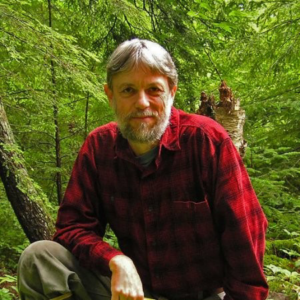 October 18: Values and trends of Maine’s Forest & Woodlands, from the ‘Big Woods’ up north to our local woodlands
October 18: Values and trends of Maine’s Forest & Woodlands, from the ‘Big Woods’ up north to our local woodlands
The State of Maine is fortunate to have a wealth of forested landscapes, from our local town community forest or land trust, from conservation woodland to actively managed forests. Forest Ecologist Rob Bryan will explore lessons learned from projects like Portland’s Baxter Woods, Maine’s forest history, and future changes coming with climate change. Rob’s landmark publication Focus Species Forestry with Maine Audubon is widely used in the Northeast and Atlantic Canada to help land managers better understand the connection of wildlife habitat and forest management.
More >
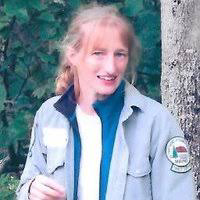 October 25: Ever-changing Impacts to the Health of Maine’s Forests & Trees
October 25: Ever-changing Impacts to the Health of Maine’s Forests & Trees
State Entomologist Director Allison Kanoti leads the Forest Health & Monitoring Division at the Maine Forest Service and is responsible for managing the many threats to the trees and forests in Maine. She and her team are at the forefront of today’s science in dealing with invasive pests and changing forest dynamics. She will talk about how they incorporate science and new technologies to address current and future threats.
More >
